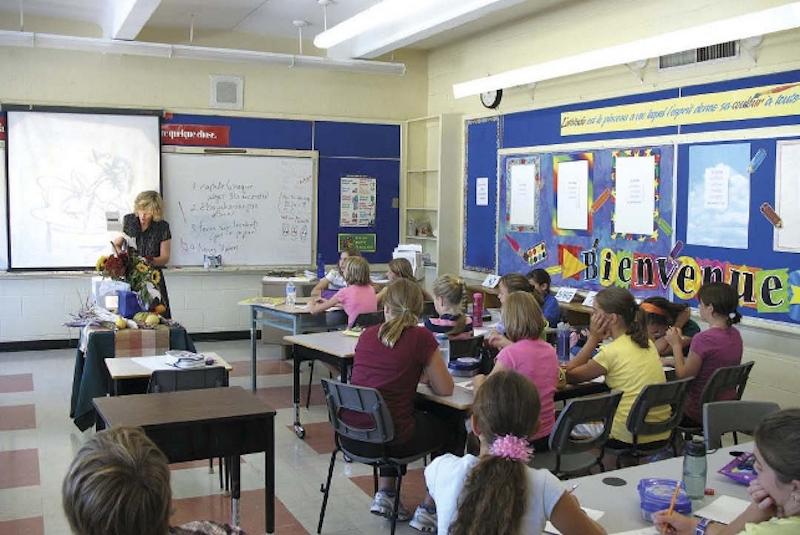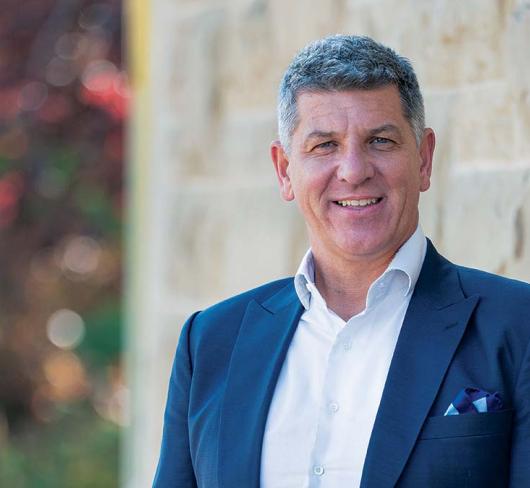
Meeting the Professional Development Needs of FSL Teachers
What could be more important in an increasingly global community than to be able to communicate effectively with as many people as possible? Language teachers hold a critical key to unlocking global understanding. As French teachers we have always sought to provide students with the ability to communicate with a broader audience. Furthermore, research and experience confirm that learning a second or additional language strengthens students’ abilities in their first language.
Despite the value of learning additional languages, teachers of French as a second or additional language (FSL) sometimes feel marginalized, as though they are working just outside of the main focus of our educational system. However, the current emphasis on literacy should encourage FSL teachers as their role in promoting literacy becomes more widely understood. The key to supporting language teachers lies in helping them to recognize their valuable contributions to developing lifelong, literate learners and in providing ways for them to advance their practice to encourage success for all students. In the Hastings and Prince Edward District School Board in eastern Ontario, we have taken steps to do just that.
Many of the schools in our board are far apart and FSL teachers are often the only second-language teachers in their schools; these two conditions, which are common to many Ontario boards, may serve to heighten feelings of isolation for FSL teachers. But we have found that there are ways to navigate and bridge the distances between schools and between classrooms. Progress along the winding road toward enhanced professional development for FSL teachers has involved many events and has been marked by several stages. Here are some of the places we have travelled along the way.
Determining the needs
Four years ago, as the board’s curriculum coordinator for languages, I visited each school to meet with FSL teachers and discuss their wants and needs. I found that these French teachers wanted to know about the latest research in teaching and learning. They wanted to network with colleagues and to find other teachers from whom they could learn. They wanted opportunities to explain what works in their classrooms and what needs to work better. They wanted up-to-date resources and the training required to use them to their full advantage. They wanted a forum for discussion that recognizes the value of their work and the effort that goes into it.
Initial discussions with teachers revealed that they had many questions about accommodations and modifications for FSL students with special education needs. To provide an immediate response, we organized after-school sessions about programming. These workshops were well attended, and they prompted the development of half-day workshops later in the year, with release time provided for one “key teacher” per school. A focus on program delivery and the development of overall literacy skills through the teaching and learning of French emerged during these sessions. This focus became the basis for additional half-day and some full-day sessions over the following two years.
Teachers came forward to lead sessions. Some did so for the challenge of presenting to other teachers, some for the sheer joy of sharing something vitally important to them.
Three summer institutes were organized to provide additional, more casual opportunities for core French and immersion teachers to come together for professional learning. Teachers learned about new methodologies and materials for teaching French, about how the brain works, about integrating daily physical activity into their French lessons, about reading skills, and about each other.
A variety of projects, large and small
- Information sharing among FSL teachers has been complemented by related projects that have enabled small groups of teachers to come together to write report card comments, create unit plans, pilot software and other resources, and develop workshop sessions for other teachers.
- Two years ago a combined elementary and secondary writing team created a grade 9 Applied course plan to meet secondary curriculum expectations by building on effective elementary strategies.
- Additional links between teachers have been forged through the creation of the Teacher Networking Program, now also a key component of the board’s New Teacher Induction Program.
- A French Language Advisory Committee (FLAC) made up of teacher representatives from all FSL programs now helps to coordinate projects and addresses the need for additional and more up-to-date resources and methodologies in core, immersion, and extended French programs.
Professional learning communities for FSL
A few years ago, a group of schools in the board, led by their principals, created a professional learning community (PLC) project to focus on literacy skills. They included FSL teachers and classes in the project – not necessarily an easy fit, but a positive message for the FSL teachers and a move toward aligning the instructional strategies of teachers of all subjects. The positive experience of this PLC led to the creation of spe- cific PLCs for FSL teachers in 2006–07.
We offered levelled readers to any teacher willing to pilot their use and to take part in a related professional learning community project. We also expanded a gesture method pilot project that had begun three years earlier. For both of these projects, teachers were invited to implement materials and approaches, prompting the development of an “implementation by invitation” approach.
The PLC kickoff occurred during a two-day summer institute in August 2006. There were followup meetings in early winter and again in early spring. Planning teams met in-between to determine how best to guide teachers in the use of materials, prepare feedback about the use of the readers in class, and report back to other FSL teachers.
Ups and downs
The journey has not always been easy, nor has the pace always been steady. This year there were two large-scale meetings of French teachers, down from three the year before. However, a considerable amount of money was spent on resources, with a large number of teachers involved in PLC projects, French immersion renewal, and new or pilot programs. A delay in funding meant the number of meetings originally planned for the French PLCs was reduced. After a late initial planning meeting, those who were most excited about the projects their groups identified carried on and completed the outlined tasks. Others continue to develop their use and understanding of the new materials and the French connections to overall literacy. A French book club about differentiated instruction was well received but succumbed to the mounting time pressures on all teachers. A small but interested group met only a few times to discuss the book, but had the opportunity to attend an evening presentation with a leader in differentiated instruction.
So the model is not set in stone. Professional development for French teachers is evolving and differentiated. Ongoing diagnostic assessment of the needs and wants of French teachers continues to provide the basis for the professional development program. Regular checks help to keep the focus on instruction and student success in the language classroom. Information is shared. Opportunities are created. Teachers are involved in small and large projects that resonate with them. At a full-day meeting for all French teachers in the board this spring, teachers celebrated that “French Class Is the Place to Be” in HPEDSB by sharing the results of almost 20 different projects.
Encouraging results
What choices are French teachers making and what impact are their choices having? Using an “implementation by invitation” approach has served students and teachers well. The pilot project using the gesture method in Junior core French classes has grown from 13 teachers to over 30 in three years. Teachers involved report higher levels of student participation and accelerated language acquisition. Three quarters of the elementary schools in the board participated in initial forays into PLCs using the levelled readers. For one of the projects developed by a PLC group, students used selected readers as mentor texts, incorporating practices from the ministry’s guides to effective literacy instruction. Several secondary French teachers remarked on how positive and well-prepared their grade 9 classes were this year.
For students, as for their teachers, the key to success has been found in positive interactions and learning experiences. Ultimately teachers want to travel the professional development road that has meaning for them, as they prove the old saying “Once a teacher, always a student.” The road toward enhanced professional development for FSL teachers in Hastings and Prince Edward is still under construction, but teachers are building it together.
